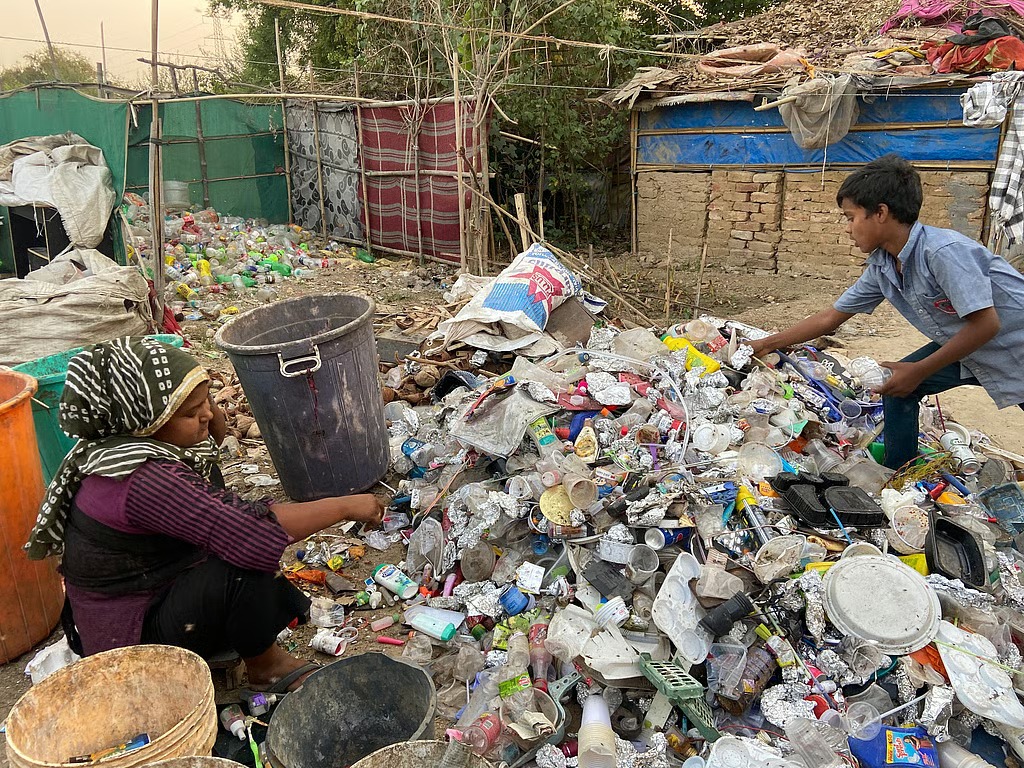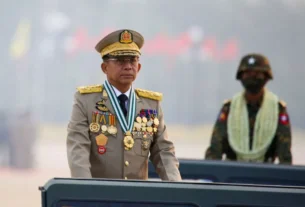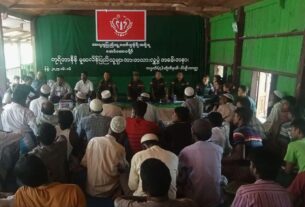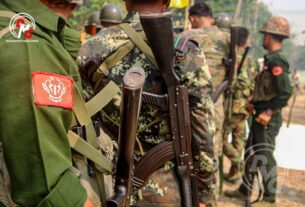A Deepening Crisis
The Rohingya refugee crisis is one of the world’s most pressing humanitarian emergencies today. Since the 1980s, Rohingyas have been fleeing persecution in Myanmar, seeking asylum in neighbouring countries such as Bangladesh, Malaysia, Thailand, Indonesia, and India – spanning both South Asia and Southeast Asia.
In 2017, the crisis escalated dramatically when the Rohingya population in Myanmar was subjected to what has been widely recognised as genocide, involving mass killing and widespread sexual violence against women.
In India alone, the UNHCR (United Nations High Commissioner for Refugees) has registered over 20,000 Rohingya refugees. Many of them came in 2000 and though they did not enjoy any support from the government, there were occasional cases of detentions, mostly over lack of refugee cards and in some cases of petty crimes.
Since 2014, Rohingya refugees in India have lived in constant fear of detention or being forcibly returned to Myanmar – a land where their basic rights and safety remain uncertain.
According to the Indian home ministry, there are about 10,000 Rohingyas, who live in Jammu and Kashmir.
A consistent crackdown on Rohingya refugees began around 2014 and has continued ever since.
Disruption of Basic Amenities
Mohammad Arif, a 31-year-old Rohingya Muslim refugee has been living in a makeshift tent in Jammu’s Narwal area for the past 14 years. His home, made of tarpaulin sheets and scraps of wood, barely protects his family from harsh weather conditions.
Arif operates a small roadside shop built from wooden planks in the Narwal slum area. His modest stall stocks a handful of items but everyday essentials-soap bars, candle boxes, a few packets of Maggie noodles, jars of toffees, cigarette packs, and a bowl of betel leaves placed next to a jar of sufali, a sweet areca nut mixture commonly used in paan (Betel quid).
He sits on a stool at the edge of the shop, staring out at the road. Waiting patiently for customers – most of them regulars who stop by for their daily paan fix.
Stressed by the current situation, Arif found himself reflecting on memories of the past.
“Last year, the authorities tried to cut off our access to basic necessities like drinking water and electricity,” Arif recounts. “On humanitarian grounds, a few landlords let us take water from their homes- but even they were harassed and summoned by the police just for helping us”.
For people like Arif, the uncertainty is constant. “We live in fear everyday- not knowing if we will be sent back to Myanmar, where we face violence and death, or if our children will ever see a normal life,” he says.
A report published in The Hindu, a prominent newspaper of India, on December 11, 2024, highlighted a visit by a United Nations High Commissioner for Refugees team to assess the conditions of Rohingya refugee camps in Jammu. The team, which included Senior Protection Officer Tomoko Fukumura and Protection Associate Ragini Trakroo Zutshi, visited the Rohingya Muslim community residing in the Kiryani Talab area of Narwal – a slum consisting of makeshift shelters and dire living conditions.
The visit came amid growing concern following a controversial move by local authorities to cut off water and electricity supplies to both Rohingya and Bangladeshi settlers. The action was reportedly taken based on an order issued by the magistrate, following directions from the police.
The move sparked political push back. The ruling party in Jammu and Kashmir National Conference, along with the chief minister Omar Abdullah publicly opposed the move to sever essential services. They called for a humanitarian approach in dealing with the vulnerable community, emphasizing compassion over coercion.
Resilience Against Existential Threat
Javed Ahmad, a 25-year-old refugee and self-taught student, describes the situation as grim.
“Every time I hear about detention or deportations, it feels like a nightmare,” he says. “To cope up with it, I keep myself engaged with the children in the camp, teaching them whatever I have learned over the years. I try to instill in them values like honesty, truth, and empathy. We are among the oppressed – but we don’t want others to suffer the same fate. We have experienced what it means to live in such difficult conditions. I hope no one else has to go through this.”
Despite the challenges, Javed remains optimistic. He believes the world will eventually recognise that oppression and violence only deepen injustice, and that lasting peace is possible only where justice is upheld.
Mohammad Alam, 47, the maternal uncle of Javed, sits quietly under the sun outside his makeshift tent in the Narwal camp. Having recently undergone leg surgery, he is no longer able to work.
“Since May 2024, I have not been able to earn a living,” he says. “I have four children. The eldest is 15, another is 12. They work as rag-pickers. One of them helps his mother crack walnuts for a small income. We are living in miserable conditions”.
Fears of Deportation
When asked about the possibility of deportation, Alam’s face tightens with fear. “I saw recently in the news that 40 people, including women and children, were deported by the Indian government. They drowned in the sea. Their condition was terrible. I can’t stop thinking about it; it terrifies me”.
In this context, a writ petition was filed in the Supreme Court, alleging that the Indian government had forcibly deported 43 Rohingya refugees– among them women, children, and elderly individuals and patients – who were later abandoned in international waters.
The New Indian Express, in its May 13 online edition, cited Live Law reports highlighting the serious humanitarian and legal concerns raised by the petition.
The Supreme Court, on May 16, rejected the claims of throwing 43 refugees into the sea, describing it a ‘fanciful idea’.
An investigation by Article 14 puts together testimonies and phone records of refugees who were taken and thrown into the sea to reveal that the incident wasn’t a figment of the imagination.
Meanwhile, on Thursday, the United Nations Special Rapporteur on the human rights situation in Myanmar took serious note of the incident, describing it as “unconscionable act”.
“The idea that Rohingya refugees have been cast into the sea from naval vessels is nothing short of outrageous,” said Tom Andrews, the UN Special Rapporteur.
“I am seeking further information and testimony regarding these developments, and I implore the Indian government to provide a full account of what happened.”
Mohammad Alam also made a heartfelt appeal to the Government of India, saying they are willing to return to Myanmar, but only when it is safe to do so.
“We don’t want to live here permanently,” he says. “We came because we were persecuted in our own country. We came here to protect our faith and save our lives. When Myanmar allows us to return safely, we will go.”
Alam pointed to the current geopolitical tensions that have added to their vulnerability. “There is already unrest in the region. And the ongoing hostilities between India and Pakistan have only made things worse for us,” he explains.
Fleeing Makeshift Homes
“At night, many men leave their homes to hide in the jungle or shift locations out of fear”.
When asked why they feel the need to flee, Alam responds with quiet desperation. “We are afraid of being detained. If I am arrested alone, my family will suffer. If you want to detain me, detain my whole family; I am ready. They arrest only the men. Where will the women and children go?”
Describing how arrests are carried out, Alam adds. “They always make excuses – either it’s for biometric, verification or some other reason. But we have already been given refugee cards by the UNHCR.”
“We are not criminals, we are refugees,” he says.
India’s Status on Refugees
It is pertinent to mention that on May 8, 2025, the Supreme Court of India, in a significant decision, declined to intervene in the alleged deportation of Rohingya Muslim migrants from Delhi. The court stated that if the Rohingya are found to be foreigners under Indian law, they are subject to deportation.
“India’s justification for deporting Rohingya refugees rests on the argument that it is not a party to the 1951 Refugee Convention and thus not duty-bound to recognize UNHCR’s refugee status determinations,” explains a Delhi based Supreme Court lawyer, Ujjaini Chatterji in response to a question.
Speaking to the Kashmir Times Ujjani further adds that, “The Supreme Court , in the Mohd. Salimullah v. Union of India case, clearly held that no Rohingya can be deported without following due process, a stance affirmed by the Union government during hearing”.
Ujjani emphasised that Article 21 of the Indian constitution guarantees that every individual has the right to life including non-citizens. “Such illegal deportations can breach constitutional protections.”
“Illegal deportation breaches both Indian constitutional protections and international human rights obligations, damaging India’s global image,” Ujjaini said.
John Quinley, Director Fortify Rights, a human rights organisation, told the Kashmir Times that “The Supreme Court ruling contravenes international law. Forcibly returning Rohingya is unlawful and must stop. India should change course and protect refugees. Refugees need legal status and protection in India.”
“Our team at Fortify Rights has documented where Indian authorities have forcibly returned Rohingya to Myanmar, where they are facing ongoing persecution and violence. We have also documented cases of indefinite detention and, in some instances, torture including severe beating of refugees in India,” he added.




